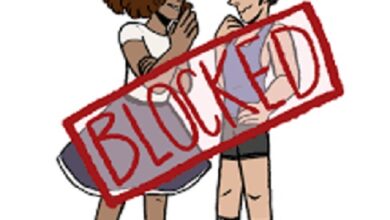How to help someone with anxiety attack Step by step of helping
What to do when someone has an anxiety attack
Anxiety attacks are often part of the “generalized anxiety disorder package” or other similar disorders. Nowadays, it is common to know people around us who suffer from anxiety attacks. Either we know someone or even we’ve been through it ourselves. Knowing how to deal with someone who is or has recurrent anxiety attacks is ideal to help us and support our colleagues, friends and family. In this article we will let you guide that How to help someone with anxiety attack?
Nowadays we need to know how to deal with our and others’ anxiety crises.
How to Help Someone with Anxiety attack
How to act in the face of an anxiety crisis?
- Understand what an anxiety attack really is
- help with the symptoms
- Understand what caused the anxiety attack
- Try to understand if the person wants to be alone or not
- Listen carefully and be present
Understand the neuroscience of anxiety attacks
In order to know what to do when someone has an anxiety attack, we really need to understand how it works. Behind the “anxious way”, there are hormones and behavior triggers that help to activate the crisis. So understanding the neuroscience of anxiety is essential to helping anyone.
help with the symptoms
Usually when someone has an anxiety attack, the person experiences very uncomfortable symptoms, but sometimes we cannot “resolve the issue that caused the crisis at the same time”. Exactly for the reason that when someone is going through this, their head cannot solve many questions.
Knowing this inability to resolve the reason for the crisis at the time it occurs, we need to help with the symptoms, calming the individual through support phrases and deep breaths.
Understand the reason for the crisis
Most of the time we want to know how to help someone with an anxiety attack, we get nervous and don’t understand what triggered the crisis. Triggers , starting points that trigger the crisis, are not always directly related. But when we stop to notice “from here he/she started to become very anxious” we can remove the person from the environment that is causing the anxiety.
Make space or stay together
To answer that question, nothing fairer than asking the person how they want it, right? There are people who, when experiencing anxiety attacks, want to be alone while others prefer to be accompanied. We must pay attention to this point, as there are individuals who may run the risk of self-injury during the crisis, with these people it is necessary to be careful.
Listen and be present
Venting can be important in a time of explosive anxiety. So, when you ask yourself “what should I do when someone has an anxiety attack” the first thing is to listen to the other and show that you are there to support them.
Don’t try to be right at this point, many times when an individual is going through this situation he can say things that don’t make much sense and even offend people he wouldn’t normally offend.
The neuroscience of those with anxiety attacks
The anxiety crisis is born from a natural instinct of the human being, which is exactly anxiety. The need to enter a state of fight or flight in the face of fear, apprehension, danger, among others. When this state goes into “collapse” or “explosion” after repeating it countless times throughout the week, an anxiety crisis can occur.
When a person has an anxiety crisis, we need to understand that the person is going through hormonal ups and downs. After all, the crisis goes far beyond psychological suffering, it is also physical.
Anxiety crisis symptoms
- Sweating
- altered heartbeat
- Wheezing and/or interrupted breathing
- Fast and generally negative thoughts
- Difficulty concentrating
- Physical sensation that “you will die or end of the world”
Knowing these symptoms, in order to know what to do when a person has an anxiety attack, it is necessary to understand the hormones involved in this process in order to help “reduce and regulate them”.
Hormones involved in anxiety attacks:
- dopamine
- serotonin
- glutamate
- neurodopamine
- Cortisol
glutamate
One of the most important anxiety hormones is glutamate, its function is exactly to excite the central nervous system, it has a direct connection with anxiety disorders. To know what to do when someone has an anxiety attack, we must understand about this hormone and how to reduce it in the middle of the crisis.
He is primarily responsible for cardiac reactions in the anxiety crisis, as well as hypertension, respiratory symptoms. Furthermore, studies show that it increases one’s own social avoidance (isolation).
There is no perfectly studied way to reduce this hormone and its performance in the brain, since without it your concentration and well-being would also be affected. Relaxation is one of the main forms of control, since this hormone seeks neural activation to face dangers, tension is reduced, and the hormone will soon decrease.
Step by step of helping someone with an anxiety attack
- Listen to what the person has to say
- Show you are there to help
- Demonstrate and say you don’t want to “fight her”
- unconditional support
- Try to help her relax.
- Ask what she needs
listen and support
Helping someone with an anxiety attack is difficult even for those who are used to it. But one thing is certain, the anxiety crisis is an “explosive” process that many times “expunging” will help to reduce it. So, ask the person to talk about what they’re feeling, let them say what they want, don’t take it to heart since it’s a difficult time.
Show that you are there to help her even if you don’t understand something. Unconditionally support your friend / friend, show that you are not wanting to change what he feels.
help to relax
Anxiety is born out of a state of fight and flight where the body wants to defend itself in some way. Show that “someone” that you want to help that you are not against him/her and that your role at that moment is to support him/her in whatever he/she needs.
Ask if he wants to relax or if he wants to try some breathing techniques to help lessen his physical anxiety. If possible and if you are going to help, do the relaxation techniques with him showing that you are committed to helping him. Learn more about progressive relaxation that can help when you’re wondering what to do when someone has an anxiety attack.



